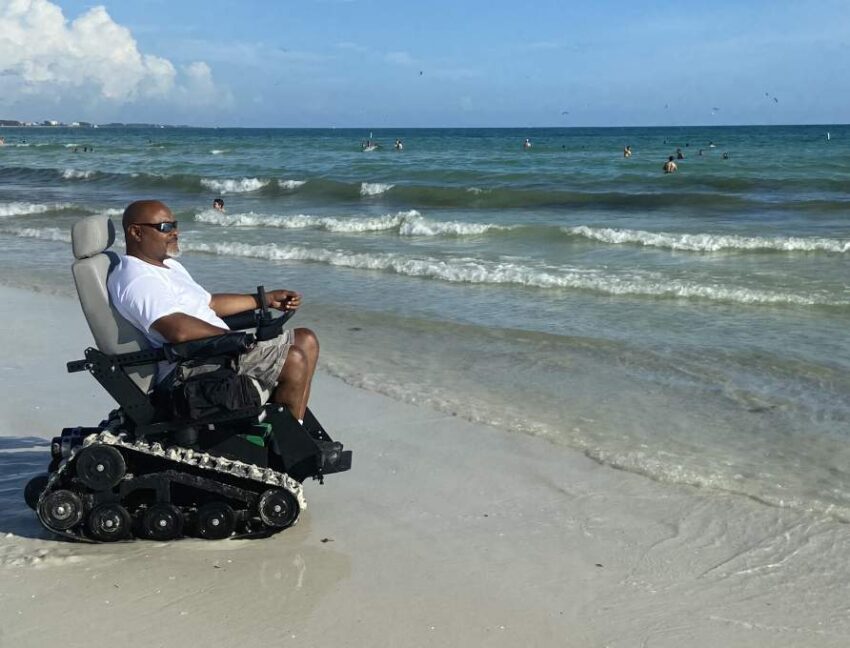Written by Kevin McGeever for Visit Florida, October 11, 2021
Long before Cordell “Cisco” Jeter envisioned tracked wheelchairs as a means of unlocking accessible travel, long before he realized his life’s ambition of opening the Florida outdoors to people of all abilities, Jeter was 19 years old, pinned under a crumpled wreck on the side of a mountain.
There were four Salem College students in the car that spring day in 1988. The drive from northern Virginia to the West Virginia campus took four-plus hours. The three passengers napped — Jeter on the right side in the back. Nobody was wearing a seatbelt which, as it happened, may have saved their lives.
When the driver reached into the back seat for a moment, the road turned, and the car just went over the side. No brake lights. No skid marks. During a half-dozen rolls, everyone was ejected.
Jeter awoke on his side, feet pointing down the slope. “I could see the spinning wheel of the overturned car and, up the slope, people.” He couldn’t determine how far he had traveled, but he remembered that “the people were small.”
Jeter was trapped under the wreck from mid-chest down. “My back hurts and I’m having trouble breathing,” he told a firefighter.
“What position are your legs in?” the firefighter asked.
Jeter: “My right leg is over my left.”
“Try again,” the firefighter said.
“My left leg over my right?”
“You don’t move,” the firefighter said. “We’ll get you out of here.”
“I knew anatomy,” Jeter said, “and there was a problem.” The three-sport star who was voted most athletic in his high school of 5,000 students, who was a scholarship college football player, was now paralyzed from the waist down.
